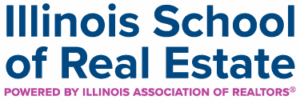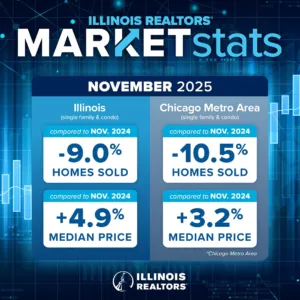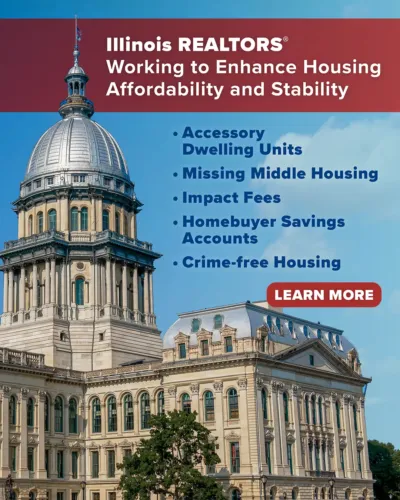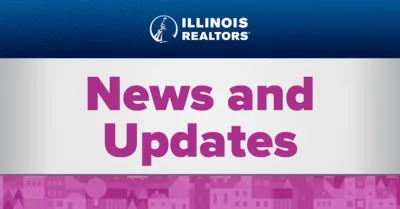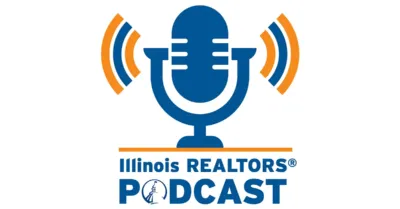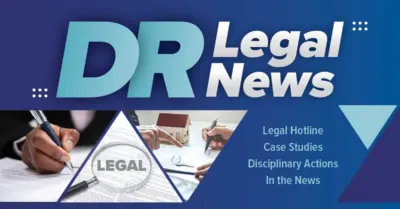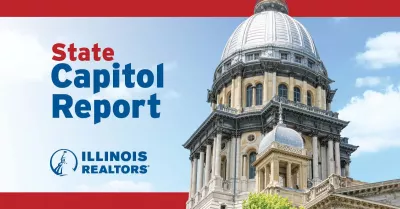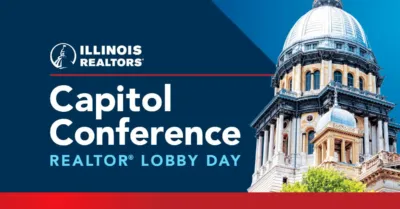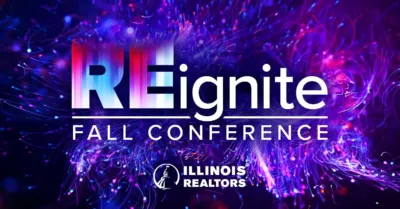October 17, 2025 State Capitol Report
The General Assembly returned to Springfield this week for the first week of the scheduled two-week Veto Session. At the top of lawmaker’s priorities during the week and what will undoubtedly be their priority for all of Veto Session, is addressing the looming transit funding cliff, which could include higher real estate taxes. Even with budget negotiations and revenue proposals being the focus of the legislature, Illinois Realtors®’ State Legislative Team spent the week responding to amendments and defending against other problematic legislation that some legislators try to sneak in during the shortened session. Below are the highlights of this week’s legislation.
Real Estate Transfer Tax & Transit Cliff
Without new revenue, the Chicago Transit Authority (CTA) is expected to exhaust its funding by mid-2026, triggering major service reductions and layoffs by the third quarter of that year. Last summer, Illinois REALTORS® launched a public awareness campaign opposing efforts to raise real estate transfer taxes to fund transit reform. The campaign ran for four weeks across the collar counties and suburban Cook County, warning of the impact of a last-minute proposal that would increase suburban transfer taxes by 600 percent. Although the Illinois Senate approved the measure in the final hours of the spring session, the House adjourned before considering it.
Throughout the summer, a House working group met to refine the proposal. While no new legislative language has been released, multiple funding scenarios remain under review — including the version passed by the Senate that would expand transfer taxes in suburban Cook and collar counties.
At a time when Illinois faces a severe housing shortage and affordability crisis, increasing real estate taxes would only deepen the problem. The northeast region of the state ranks second-to-last nationally in housing inventory recovery since the pandemic, and Illinois trails its Midwest neighbors in new housing starts. An estimated 225,000 new homes are needed over the next five years to meet demand. Raising housing-related taxes will further constrain growth and affordability.
As negotiations continue, the REALTORS® legislative team remains in close contact with House members. A Call for Action is prepared and ready to launch if necessary. This issue remains fluid.
Bills of Interest
The following “Bills of Interest” saw legislative action this week.
At-A-Glance – Final Week of Veto Session
The House and Senate will reconvene for the final week of veto session from October 28–30, in what will undoubtably be an intense and action packed three days. Prior to the legislature returning, Illinois REALTORS® will be in constant communication with legislators regarding these crucial issues. Like the final week of spring session, the last three days of this veto session are expected to see critical legislation and budget matters be rapidly moved through the legislative process, but your State Legislative Team is prepared for immediate action and response to all proposed measures. As we mentioned above, please be alert and prepared to show the power of the REALTOR® voice and strength in our numbers, if asked to respond to a Call For Action.

